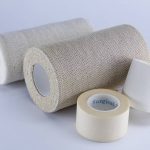A new study has shown that extracts from crocodile white blood cells can reduce the growth of human cancer cells. Researchers are looking closer into the matter in hopes of finding novel cancer therapies in the future.
The WHO has estimated that cancer is responsible for almost 1 in 6 deaths globally, making it one of the most prevalent diseases in modern times. Although many drugs are available for treating the disease, cancer drugs are often associated with unpleasant side-effects and many might become ineffective due to drug resistance. Because of this, scientists are constantly on the lookout for new drugs from evermore exotic sources. Now, a study has shown that crocodile blood could also be an unlikely source of anti-cancer drugs in the future.
A clue that crocodile blood contained useful therapeutic compounds came from observing the behaviour of the crocodiles themselves. Siamese crocodiles are extremely aggressive and would often fight and wound one another. Surprisingly, despite living in water that’s teeming with bacteria, crocodile wounds rarely get infected and heal relatively quickly.
When researchers examined the blood from these crocodiles, they found numerous beneficial compounds such as antioxidants and molecules which promote wound healing and reduce inflammation. Researchers also found that crocodile white blood cells (cWBC) produce special proteins called antimicrobial peptides (AMPs) that showed potent antibacterial activity against various pathogenic microbes. Interestingly, previous studies have shown that some AMPs, apart from killing bacteria, can also target cancer cells while leaving healthy cells intact. The reason for the cancer-targeting ability of AMPs is still not completely understood but scientists think that cancer cells, similar to bacteria, have a different cell membrane makeup compared to healthy cells which attracts these molecules. These cancer-fighting properties could also explain why crocodiles rarely show any symptoms of cancer during their average lifespan.
Based on these observations, a team of scientists from Thailand and Hawaii decided to conduct a study to determine whether
Cancers often become deadly because the cells are able to spread from one
The researches then wanted to explore the basis for the anticancer properties of the extract. Under the microscope, cancer cells treated with the cWBC extract showed several distinctive features including membrane abnormalities, condensation of the cell nucleus and cell shrinkage. These observations are often seen in cells undergoing cell death in a process called apoptosis. The team decided to investigate further and look for molecular signatures which would confirm the activation of apoptosis. They chose to perform these experiments with their prostate cancer cell line because these cells were particularly sensitive to the actions of the extract.
The team confirmed their suspicions when they found that prostate cancer cells treated with the extract contained higher levels of apoptosis-activating genes (caspase-3 and caspase-8) and lower levels of genes that inhibit apoptosis (Bcl-2 and XIAP) compared to untreated cells. The scientists also found other known triggers of apoptosis in the treated cells such as increased levels of reactive oxygen species and a higher proportion of abnormal cell cycle events. This ability to activate apoptosis through different cellular pathways might also explain why the cWBC extract is so effective at inhibiting cancer cell growth and migration.
Despite its promising anti-cancer properties, more work will still need to be done before the cWBC extract can be used to treat cancers in humans. For example, the team needs to identify exactly which components of the extract are active against cancer cells. Also, the team has to show that the purified components can stop the growth of tumour cells in animals and eventually in human trials. However, if these concerns can be addressed, crocodile blood-derived molecules could be a step in the right direction towards developing newer and better anti-cancer drugs in the future.
Paper Reference: Phosri, S., Jangpromma, N., Chang, L.C., Tan, G.T., Wongwiwatthananukit, S., Maijaroen, S., Anwised, P., Payoungkiattikun, W. and Klaynongsruang, S., 2018. Siamese Crocodile White Blood Cell Extract
By Andrew Liew, PhD



